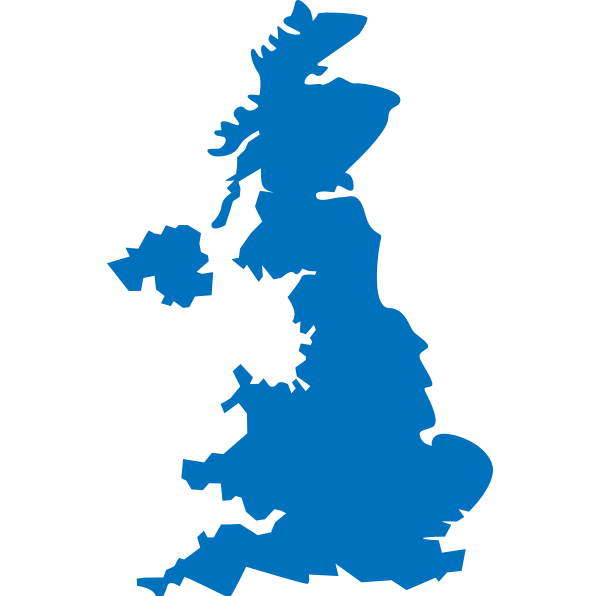MG Legal, Leading Family Law Solicitors. The team that put you first. Contact us to speak to a solicitor today: 01772 783314 or email at: enquiries@mglegal.co.uk
Child maintenance guide
Child Maintenance - a history
Historically, the Family Court would deal with child maintenance however the Child Support Agency created in 1993 was meant to enforce the provisions of the Child Support Act 1991. It is the general view that the Agency was unsuccessful. A new scheme was implemented in 2003 with the aim of it being a more simplified system however transfer of old cases to the new system proved problematic which prompted a report from Sir David Henshaw that described the CSA as "unfit for purpose". The Child Maintenance Service began in 2012 and initially only dealt with new cases involving 4 or more children. In July of the following year it opened up to families of 2 or more children. Consequently, the Child Maintenance Service now has the responsibility to deal with all child maintenance cases. That said, Family Courts may still be involved in Child Maintenance matters if the payment of school fees are being disputed or in the case of wealthy families, when an amount exceeding the maximum figure payable by the CMS’s calculation is sought or in cases where the child lives abroad.
Do you have to be married to get child maintenance?
The Child Maintenance Service will have jurisdiction to deal with the matter whether the parents of the child are married or not however it will only make a maintenance calculation if the parents are no longer living together. You do not have to wait until you are divorced before claiming and child maintenance will be a separate issue to the division of marital assets. One important thing to note is that the law says both parents are financially responsible for any children until they reach 18 years of age and there is no expectation that the parent who no longer lives with the child should carry the full financial responsibility. Also, child maintenance will only cover the essential day to to day costs of a child. Anything extra such as school trips, activities etc are a separate issue.
Get in touch and talk to a family law solicitor today.
Understanding, professional and completely dedicated to your cause;
contact MG Legal's Family Law experts and we will get back to you within one business hour.

Fixed-fee Family Law Solicitors:
MG Legal's leading Family Law Solicitors in Preston offer all of our family law services on a clear, fixed-fee rate.
Our team put your first, and work with care to ensure the best outcome for you and your family. Call us today on a free, no-obligation basis at: 01772 783314

Get in touch today to speak to a Family Law Solicitor.
Is there an age limit for claiming child maintenance?
Maintenance calculations can be made in favour of children under 16 years old and those under 20 years old who are still in full time education or who may have special needs.
Do I have to pay child maintenance for stepchildren?
The Child Maintenance Service does not have jurisdiction to deal with stepchildren, indeed it will be for the Courts to determine whether child maintenance should be paid. If the stepchild has been raised as part of a new family consisting of parent, steparent, stepchild, and biological children then the Court may well determine that child maintenance is required for the stepchild.
Maintenance and property orders for children in divorce and dissolution proceedings
When a parent is involved is divorce proceedings, dissolution of civil partnership, judicial separation or nullity proceedings, they could apply for a lump sum or property adjustment order for a child of the family as part of the financial settlement proceedings however in practice relatively few orders of this type are made in favour of children as maintenance is generally dealt with by the Child Maintenance Service. Applications could also be made under Schedule 1 of the Children Act 1989.
The amount of child maintenance payable can be included in the financial order which sets down the division of financial assets and payment of any spousal maintenance but it should be noted that an application to the Child Maintenance Service can still be made after a year has passed from the date of the order. Sometimes it is agreed that separate child maintenance is not paid as the parent is contributing in other ways, such as paying the mortgage. However the warning is that either parent can make an application to the Child Maintenance Service after a year from the date of the order regardless of any agreement.
Do I have to continue paying child maintenance after I retire
Yes, if the child in respect of whom maintenance is to be paid still qualifies to receive payments. When calculating maintenance the CMS will indentify the paying parent's gross annual income and convert this into a weekly figure. The amount of maintenance payable will be based on this figure. Therefore the rate may alter if the income has decreased due to retirement.
What would happen if I die? Is maintenance paid from my estate?
Payments of maintenance will stop on the death of either parent. The assumption may be that if it is the parent with care that dies then the child or children will then live with the paying parent although this is not always the case. If it is the paying parent that dies then the CMS can take steps to claim any arrears of child maintenenance from his or her estate. However it should not do so without the consent of the parent with care.
So if you are the one paying maintenance how you ensure that children will be provided for financially? There are various ways of doing this.
The most common way is to make a Will in which you can make provision for your children to inherit upon reaching a certain age. Although they cannot control their own money until they reach 18 years of age at the earliest, you can specify that your executors (ie the person or people who will ensure that the provisions of your Will are followed) can use the children's inheritance to provide for their maintenance or education. Or you can provide a lump sum to the person who will be caring for your children for this purpose.
Another option is to set up a trust for the children so that regular maintenance can be paid in the event of your death. The monies in the trust will be managed by one or more trustees who will be responsible for ensuring the provisions of the trust are met.
A more common option is for a parent to take out a life insurance policy which will name any children as beneficiaries in the event of death. The monies from the policy will therefore be ringfenced for the children and will not form part of what can be distributed under the main estate.
Provided adequately for dependents in the event of death is a complex area and we would recommend that you seek advice from our expert Private Client team to discuss your options.
What financial relief can I apply for?
Under Schedule 1 of the Children Act 1989, a parent, guardian, special guardian or any person who is named in a Child Arrangements Order as a person with whom a child is to live, can apply to the Court for the following :-
An order requiring either or both parents of a child to make or secure periodical payments to the applicant for the benefit of the child or to the child directly;
An order requiring either or both parents of a child to pay a lump sum to the applicant for the benefit of the child or to the child directly;
An order requiring a settlement to be made for the benefit of the child of property to which either parent is entitled and which is specified in the order
An order requiring either or both parents of a child to transfer to the applicant for the benefit of the child or to the child directly such property as specified in the order
The Court can make further orders for periodical payments or lump sums whilst a child is under the age of 18 years but it cannot make more than one order in relation to settlement or transfer of property against the same person in respect of the same child.
Interestingly, the Court can exercise its powers under Schedule 1 when considering the living arrangements for a child even though no application has been made for an order under Schedule 1.
Schedule 1 provides parents who have never been married or in a civil partnership an avenue to secure some provision for children in addition to child maintenance as they cannot make any claims for themselves following the breakdown of the relationship. However, in many cases a property provided by a non-resident parent will remain in the name of that parent and the person with care (and indeed the child) will need to leave that property upon a certain event occurring such as the child reaching 18 years of age.
How do I get child maintenance if the parent lives abroad?
An application to the Child Maintenance Service ('CMS') cannot be made if it is the child and the parent with care that lives abroad, however if it is the paying parent that lives abroad the CMS can assist in certain circumstances.
One example of this is where the paying parent is working abroad for certain British organisations such as :-
as a civil servant
for Her Majesty's Diplimatic Service
as member of the Armed Forces
for a company that is based and registered in the UK
for the NHS
for a local authority
In these cases the Child Maintenance Options team can explain the process and how to apply.
If the other parent lives abroad for other reasons then a decision of the CMS can be recognised or enforced by that country if that parent lives in a Reciprocal Enforcement of Maintenance Orders ('REMO') country. A list of these countries (of which there are many!) can be found on www.gov.uk site.
If the parent lives in a REMO country the person seeking recognition or enforcement of an Order made in England and Wales will need to contact their nearest Maintenance Enforcement Business Centre ('MEBC') for an application form which will need to be sent back with all supporting documents. There is no fee for this. It is important to tell the MEBC if you do not want the other parent to see certain information, such as your address.
If the original child maintenance decision was made in Scotland or Northern Ireland then the process is different.
Why choose MG Legal?
Well, there is nothing our expert family lawyers haven't seen or done in the Family Courts. We know that the advice given could affect the rest of your life: so we sit and listen, advise as to the options and then do more than any other legal team to get you the best result in your particular case. Our success rates are second to none - read our reviews.
Make sure you choose the right legal team to back you.
MG Legal – Your Local Solicitors (and YES, we are here to help!)
Expert legal services across England and Wales:
No matter where you are located across England and Wales, MG Legal's expert Family Law solicitors are here to help you to achieve the best possible outcome in your family law matter.

Free Consultation

Nationwide Services

Decades of Experience

No Win No Fee Injury Claims

Multiple Office Locations

Fully-Qualified Solicitors




